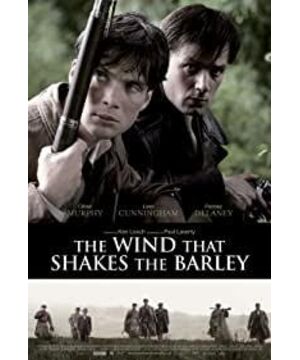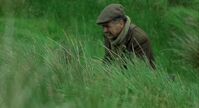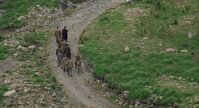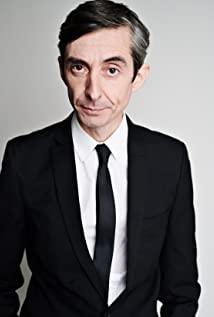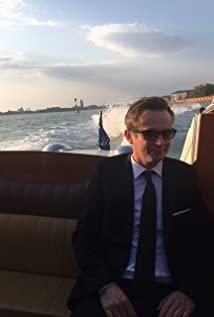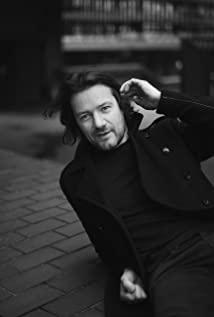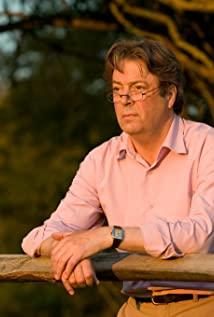The young people at this time have an urgent goal to achieve. For the independence, freedom and equality of the nation, everything has a strong cohesion under the centripetal force of this goal. But more critically, they neglect to identify what they are going to stand for, which is the class they are fighting for. Damien recites Connery's speech fondly in prison with Dan, "Even if you drive out the British army tomorrow and raise the green flag at Dublin Castle, unless you build a socialist republic, all your efforts will be in vain. For nothing, and England will rule you, with his landowners, capitalists, and consortiums." And his brother Teddy, who was the leader of the group, was later ruled by a court approved by the House of Commons for the first time. The man who was convicted was let go because he was a landlord, a capitalist, and he had the money to give Teddy their guns. Disagreements began to surface and set the stage for later tragedies. When Damien painfully killed Chris Reilly, who had betrayed them out of fear, he knew he had to keep going.
When the revolution finally seemed to be a victory, and after the celebration, the Damiens found that those who had led them and influenced them were compromising with the British, and the expected socialist republic would not come, it seemed that it was just a brown on the street. The dog turned into a green dog. "While there are a few respectable exceptions, the entire Catholic Church has once sided with the rich". The contradiction has intensified completely. The Damiens want to build a socialist republic that supports the proletariat, while the Teddies seem to be more intent on maintaining the rule of the rich after independence. The contradiction between Damien and Teddy directly reflects the two classes. contradiction. When everything had to be resolved by force, Dan died, and Damien was put in the same prison where everyone sat together during the British rule. "It's easy to know what you're against, but it's hard to know what you're after." A French man named Jean-Paul Sartre also said, "Anyone determines himself negatively through the totality of possibilities that are impossible for him, that is, through a future that is more or less blocked." The so-called The heroes are drowning in their own lofty ambitions, but Damien unconsciously insists more firmly on his ideals. When Damien decided to understand this, what appeared in the director's camera seemed to be the so-called reincarnation, or fate, the former executioner became the victim, the same ending, but a different reason, Chris Rayleigh was beaten to death by Damien for betraying his comrade, but Damien was beaten to death by Teddy for refusing to betray his comrade. But for Chris's mother and Damian's girlfriend Sini, the painful "I don't want to see you again." is full of the same emotion.
Marx said that the proletariat has the most thorough revolutionary character, but when the proletariat finally becomes the possessed class through revolution. The Teddies drove the British out to become rulers themselves, and the children were still starving. Then if the Damiens win, who will be the prisoners who have held Teddy and Damien, who will be the torturers, and who will be the victims. And the real history is written like this:
In 1919, the majority of Irish MPs elected in the 1918 general election refused to serve in the British House of Commons, they formed their own Irish House of Representatives and issued a unilateral declaration of independence in January 1919 under the name of an independent "Republic of Ireland". At that time, Ireland was not recognized internationally, but after the Anglo-Irish War (also known as the Irish War of Independence), representatives of the British and Irish sides reached a Anglo-Irish treaty to grant Ireland legal autonomy, that is, Dominion status. Ireland established the Irish Free State, the territory including the whole island of Ireland, but the treaty allows the six northern counties (ie Northern Ireland) not to participate in the Irish Free State. The Constitution of the Free State of Ireland also stipulates that Ireland is a constitutional monarchy, the King of Ireland is concurrently held by the King of England, and the position of Governor is established at the same time, and the Parliament adopts a bicameral system.
On December 19, 1937, Ireland adopted the new Irish Constitution, which officially designated the country's name as "Ireland" and established the Irish presidency, but the king continued to be the symbol of the Irish state internationally in accordance with statute law. The Republic of Ireland Act passed on April 1, 1949 finally abolished the monarchy, handing over all the powers of the king to the president, and Ireland became a republic.
Ireland automatically withdrew from the Commonwealth when it declared a republic in April 1949. (The Commonwealth only changed its rules in 1950 to allow India to remain in the Commonwealth as a republic.) Although Ireland did not reapply to the Commonwealth, it retained the rights of many member states, such as Irish citizens in the UK Enjoy all British citizenship rights, including the right to stand in UK domestic elections and to join the British Army.
Who is right? Who is wrong again? In the vast river of history, Damien seems insignificant after all, and Ireland is still green after all.
Director Ken Loach uses realism to show the changes of the big times with the experiences of small people. The plot is set properly, which makes the film highly watchable in terms of artistry and entertainment.
On Wednesday, October 25, 2006, the light rain in Wuhan turned cloudy and
unknown
.
Director: Ken Loach.
Starring: Liam Cunningham, Padraic Delaney, Cillian Murphy.
Country:
Ireland Duration: 2 hours 04 minutes
Year: 2006.
Winner: Palme d'Or at the Cannes Film Festival
View more about The Wind that Shakes the Barley reviews


